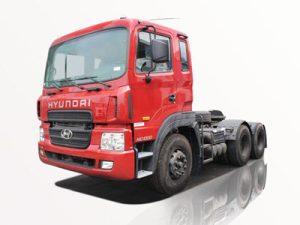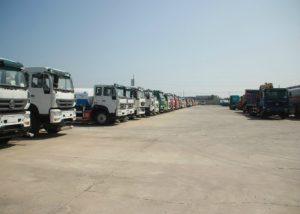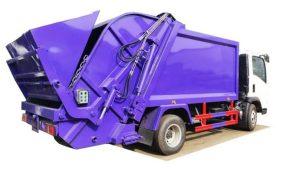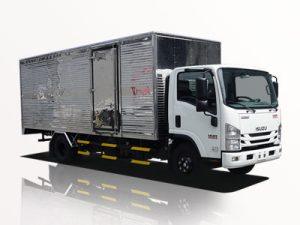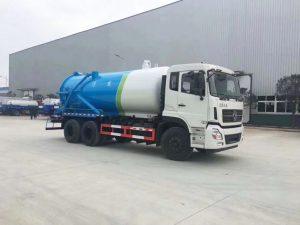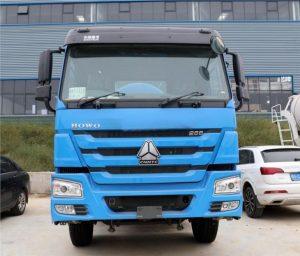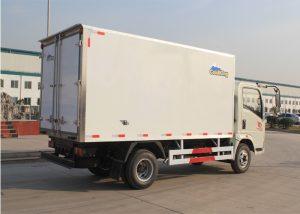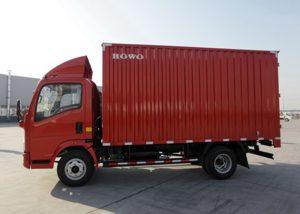Monday to Saturday - 8:00 -17:30
Understanding Bulk Cement Trailers: Types, Uses, and Benefits
In the world of construction and manufacturing, the transport of materials is a crucial aspect that directly influences the project timeline and costs. One essential piece of equipment that facilitates this transportation is the bulk cement trailer. This article explores the different types, features, and operational factors of bulk cement trailers, providing a comprehensive overview for potential buyers and users.
What is a Bulk Cement Trailer?
A bulk cement trailer is a specialized type of tank trailer designed for transporting bulk quantities of powdered materials like cement and other construction aggregates. These trailers are engineered for efficiency and safety, ensuring the material can be delivered to construction sites without waste or contamination.
Key Features of Bulk Cement Trailers
Understanding the features of bulk cement trailers helps in selecting the right type for specific needs. Here are some key characteristics:
- Material: Most bulk cement trailers are made from high-strength, lightweight aluminum or steel, contributing to durability and longevity.
- Cylindrical Shape: The cylindrical shape minimizes the risk of blockages and ensures smooth material flow.
- Pneumatic Unloading Systems: Many trailers are equipped with pneumatic systems that allow for efficient unloading of the cement at the destination.
- Insulation: Insulation may be employed to prevent the cement from setting or clumping during transport.
Types of Bulk Cement Trailers
Bulk cement trailers come in various designs, each tailored for specific transporting tasks. Below are some common types:
Pneumatic Bulk Trailers
Pneumatic bulk trailers use air pressure to unload materials. They are commonly used for transporting cement, fly ash, and other powdered products. Features include:
- High unloading speed
- Efficient for long-distance transportation
- Reduces physical labor during unloading
Gravity Feed Bulk Trailers
Gravity feed trailers rely on gravity to discharge materials. They are simpler in design and typically less expensive. Advantages include:
- Lower cost compared to pneumatic options
- Suitable for short-distance transportation
Vacuum Bulk Trailers
Vacuum bulk trailers operate using a vacuum system to lift materials into the trailer and discharge them. They are ideal for transporting cement in large volumes, offering:
- Efficient load transfer
- Minimized dust emissions
Benefits of Using Bulk Cement Trailers
Investing in bulk cement trailers can yield several benefits for companies involved in construction and manufacturing:
Cost-Effectiveness
Bulk transport significantly reduces per-unit transportation costs compared to smaller deliveries. Companies can save on fuel and labor costs by transporting large quantities of cement at once.
Increased Efficiency
Bulk cement trailers are designed to minimize loading and unloading times. Fast unloading systems can lead to quick turnaround times, allowing construction crews to get to work faster.
Improved Safety
Modern bulk cement trailers are equipped with safety features such as pressure relief valves and reinforced structures, reducing the risk of accidents during transportation.
Choosing the Right Bulk Cement Trailer
Selecting the appropriate bulk cement trailer is vital for operational efficiency. Here are some factors to consider:
Volume Capacity
The capacity of the trailer should align with typical project requirements. Common capacities range from 3 to 40 cubic meters. Evaluating your needs can help in choosing the right size.
Type of Material
Different types of materials may require specific trailers. For instance, powdered materials may need pneumatic trailers to avoid clumping and ensure a smooth unload.
Compatibility with Equipment
Ensure that the trailer is compatible with the loading and unloading equipment at your facilities. Check for standard fittings and equipment to ensure smooth operations.
Buying vs. Leasing Bulk Cement Trailers
Businesses must weigh their options between purchasing and leasing bulk cement trailers. Here are some pros and cons:
Purchasing Bulk Cement Trailers
- Pros:
- Ownership and control over the asset
- No recurring monthly payments
- Cons:
- High upfront costs
- Maintenance responsibilities
Leasing Bulk Cement Trailers
- Pros:
- Lower initial investment
- Access to newer models without worrying about depreciation
- Cons:
- Recurring monthly payments
- Restrictions on usage and modifications
Maintenance Tips for Bulk Cement Trailers
Proper maintenance is essential to prolong the life of bulk cement trailers. Here are some maintenance tips:
Regular Inspection
Make a habit of inspecting the trailer for any wear and tear, especially on tires and valves, before and after use.
Cleanliness
Regularly clean the interior of the trailer to prevent the build-up of cement residue that can lead to clogs.
Check for Structural Integrity
Inspect the structure for any signs of rust or damage, especially in steel trailers, to prevent costly repairs later on.
Bulk Cement Trailer Regulations and Compliance
Transporting bulk cement entails compliance with various regulations. Here are key points to consider:
Weight Regulations
Ensure that your trailer complies with local weight limits to avoid penalties during transport.
Safety Regulations
Follow safety protocols, including securing the load and using proper markings, to ensure compliance with transportation laws.
Environmental Considerations
Adhere to regulations regarding dust emissions to minimize environmental impacts during loading and unloading processes.
FAQs About Bulk Cement Trailers
What materials can be transported in bulk cement trailers?
Bulk cement trailers are primarily designed for transporting powdered materials. This includes cement, fly ash, and other dry bulk materials.
How much does a bulk cement trailer cost?
The cost of a bulk cement trailer varies based on type and capacity, ranging from $30,000 to $100,000 or more.
What is the average lifespan of a bulk cement trailer?
With proper maintenance, bulk cement trailers can have a lifespan of 10-20 years, depending on usage and care.
Can bulk cement trailers be used for other materials?
Yes, while they are primarily used for cement, some bulk cement trailers can transport other powdered materials, but it’s essential to ensure compatibility.
Do I need a special license to operate a bulk cement trailer?
Yes, operators typically need a commercial driver’s license (CDL) and may be required to complete additional training specific to transporting hazardous materials.
How can I improve the unloading efficiency of my bulk cement trailer?
Investing in pneumatic unloading systems and ensuring proper maintenance of the equipment can significantly enhance unloading efficiency.


